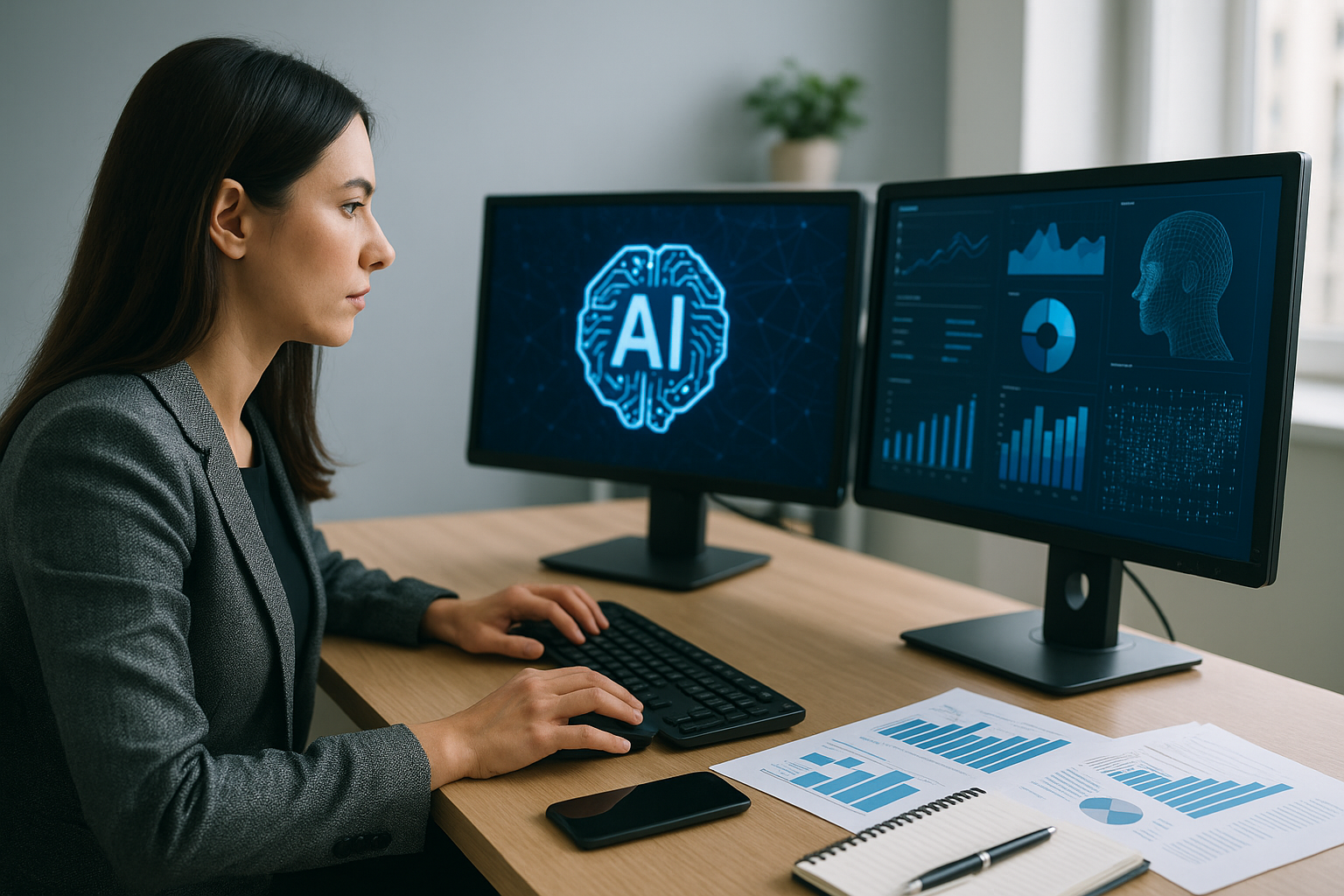AI powers SME growth but strategic gaps threaten long-term value
Emerging technologies such as GenAI are beginning to show strong potential, particularly in marketing, customer interaction, and content automation. XAI tools help build trust by demystifying AI decision-making, which is critical for compliance and risk management. RPA is favored for automating repetitive tasks in HR and finance. CV applications, though more niche, are used in inventory and quality control. Each technology adds measurable value, yet adoption patterns vary depending on firm size, sector, and readiness.

A newly published systematic review confirms that artificial intelligence (AI) is becoming increasingly embedded in small- and medium-sized enterprises (SMEs), transforming how they operate, compete, and grow. The study, “Artificial Intelligence in SMEs: Enhancing Business Functions Through Technologies and Applications”, published in Information, delivers one of the most comprehensive assessments to date of how SMEs are adopting AI technologies and what barriers remain to full-scale, effective deployment.
Reviewing 50 high-quality academic studies from 2016 to 2025, the authors provide a clear synthesis of the current state of AI adoption across business domains such as sales, operations, finance, and customer engagement. The report also highlights a roadmap of technological, organizational, and strategic enablers that can help SMEs optimize their AI investments.
What AI technologies are most widely adopted by SMEs?
The study identifies seven key AI technologies as central to SME digital transformation: machine learning (ML), deep learning (DL), natural language processing (NLP), generative AI (GenAI), explainable AI (XAI), robotic process automation (RPA), and computer vision (CV). Machine learning leads in adoption due to its broad applicability across credit scoring, sales forecasting, and operational analytics. Deep learning is frequently used for customer trust mechanisms and fraud detection, while NLP powers chatbots, sentiment analysis, and document classification.
Emerging technologies such as GenAI are beginning to show strong potential, particularly in marketing, customer interaction, and content automation. XAI tools help build trust by demystifying AI decision-making, which is critical for compliance and risk management. RPA is favored for automating repetitive tasks in HR and finance. CV applications, though more niche, are used in inventory and quality control. Each technology adds measurable value, yet adoption patterns vary depending on firm size, sector, and readiness.
How are SMEs applying AI across business functions?
AI is being integrated into almost every core business area within SMEs. In sales and marketing, AI enables dynamic pricing, customer segmentation, and 24/7 support through chatbots. NLP tools like Word2Vec and BERT assist in understanding consumer preferences and improving customer satisfaction. Operations and logistics benefit from AI through real-time inventory control, robotics in warehouses, and predictive maintenance via machine learning models.
In finance and accounting, AI supports credit risk modeling, financial forecasting, and fraud detection. Algorithms help lenders and fintech startups evaluate SMEs with greater precision and automate financial decisions. In human resources, AI facilitates automation of routine data processes while also raising concerns about low-skilled job displacement, suggesting that SMEs must strategically balance automation with workforce stability.
AI is also advancing cybersecurity and risk management, with SMEs using it to detect anomalies, monitor for threats, and analyze fake reviews that can harm reputations. Business intelligence tools driven by AI generate insights from large datasets, supporting more strategic decision-making. Lastly, AI supports research and development by forecasting product trends, optimizing design parameters, and identifying potential collaborators or patent opportunities.
What strategies help SMEs overcome AI adoption barriers?
While technical adoption is accelerating, the study emphasizes that organizational capabilities must catch up. Four pillars underpin successful AI integration: workforce readiness, infrastructure, partnerships, and strategic alignment.
Employee training is foundational. Upskilling workers in data literacy, machine learning, and analytics ensures that AI tools are used effectively. Collaborations with academic institutions and the use of AI-as-a-Service models can help SMEs lacking internal expertise build capacity efficiently.
Technological infrastructure, including scalable cloud solutions and modular software, provides the backbone for AI operations. The study stresses the importance of investing in both hardware and platforms that enable real-time data processing and integration with legacy systems.
Strategic partnerships with AI vendors, consultants, and universities enable SMEs to access best practices and share innovation risk. SMEs are advised to implement AI incrementally, using pilot projects to prove value before scaling up.
Risk management frameworks must also evolve to address cybersecurity, bias, and regulatory compliance. Explainable AI is particularly important for businesses under increasing pressure to make algorithmic decisions auditable and transparent.
Finally, aligning AI with core business strategy ensures that it enhances, not disrupts, key operational goals. The most successful SMEs view AI not as a standalone technology but as an integrated capability to drive productivity, innovation, and customer experience.
How can SMEs optimize the value of AI investments?
Maximizing AI’s impact requires not only effective implementation but ongoing optimization. The study outlines several strategies SMEs can use to measure and enhance AI outcomes:
- Key performance indicators (KPIs) such as customer satisfaction, reduced inventory costs, or shortened response times are used to track impact.
- Process optimization through automation frees human resources for higher-value tasks and strategic planning.
- Data analytics frameworks help SMEs capture, analyze, and apply data from AI-driven systems to improve forecasting, product development, and service delivery.
- Customer satisfaction tools, including sentiment analysis and AI-enhanced personalization, improve user experience and foster brand loyalty.
- Strategic decision-making benefits from AI-powered dashboards, real-time data visualization, and predictive insights that guide resource allocation and market responses.
- A strong culture of innovation ensures continuous improvement and receptiveness to AI as markets and technologies evolve.
- FIRST PUBLISHED IN:
- Devdiscourse










